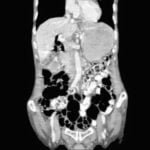
Psychological aspects of Colon cancer.
| Contributed by Dr Shaheen Shora Consultant Psychiatrist & Clinical Director HPFT, NHS UK. Cancer is the leading cause of death worldwide, accounting for nearly 10 million deaths in 2020. A cancer diagnosis can affect the emotional well being and mental health of patients, families and carers. Cancer can affect individuals feelings, mood and ways of coping. This illness is a life-changing experience and cause stress, emotional distress, anxiety and depression in patients. It also affects relationships with family, friends and colleagues as there can be significant impact on personal and professional roles. Patients may be unable to work, lose jobs, have reduced income and as a result significant impact on their lives. Although these changes can affect any age group but evidence indicates that older adults are at greater risk than younger adults for difficulties with health related decision making (Finucane et al, 2002). Older Adults also have a greater need for psychological service. On the other hand, children can be affected in a different way depending on their ability to fully understand the implications of their disease. In addition to coping with stress, worry and uncertainty brought by the diagnosis, treatments for cancer can cause fatigue, pain and disability which can continue far longer than the active disease itself. In addition to the damage caused by cancer itself, the side effects of chemotherapy, radiation and surgery can cause permanent impairment with resultant disability adding to the psychological stress. Patients with bowel cancer can have changes in bowel function, bladder function, sexual function and adjustment to physical changes following treatment. Some may have a colostomy and need a stoma bag which can lead to severe psychological issues and emotional distress affecting dignity and self esteem. It is important to recognize these changes and get help when needed. The emotional stress of living with a diagnosis of cancer and its treatment, fear of recurrence can create new or worsen pre-existing psychological distress for people living with cancer-and their families. The prevalence of psychological distress varies by type of cancer, amount of pain, degree of physical impairment and prognosis. Psychological distress is common in bowel cancer patients even up to 5 years after diagnosis. Cancer survivors face a number of psychological challenges including
In colorectal cancer survivors, the prevalence of depression and anxiety symptoms appear to be closely related to physical functioning. Patients who are married and those that are physically active tend to report lower levels of anxiety and depression, these act as protective factors. There are different kinds of psychological support that can help cancer patients, including counselling, education, group support, and spiritual support. There is clear evidence that various psychological interventions (e.g., cognitive behavioural therapy, relaxation training and group therapy) can reduce psychological distress as well as improve self-esteem, optimism and social functioning in cancer patients. Physical activity is important for survivors of colorectal cancers as physical activity interventions have shown positive effects on body strength, fatigue, anxiety and self esteem. To conclude Cancer survivors face a number of psychological challenges including anxiety, depression, sleep disturbances, pain, post traumatic stress disorder (PTSD), fear of cancer recurrence, financial hardship, and impaired quality of life (QOL). Different kinds of psychological, family support and spiritual support can improve self esteem and functioning. References : 1.Emotional, mental health, and mood changes – American cancer society 2. Meeting Psychosocial Health Needs of Cancer Survivors – National Institute of Health 3.Psychological aspects of cancer – Springer Link |
Join the mailing list!
Get the latest articles delivered right to your inbox!

